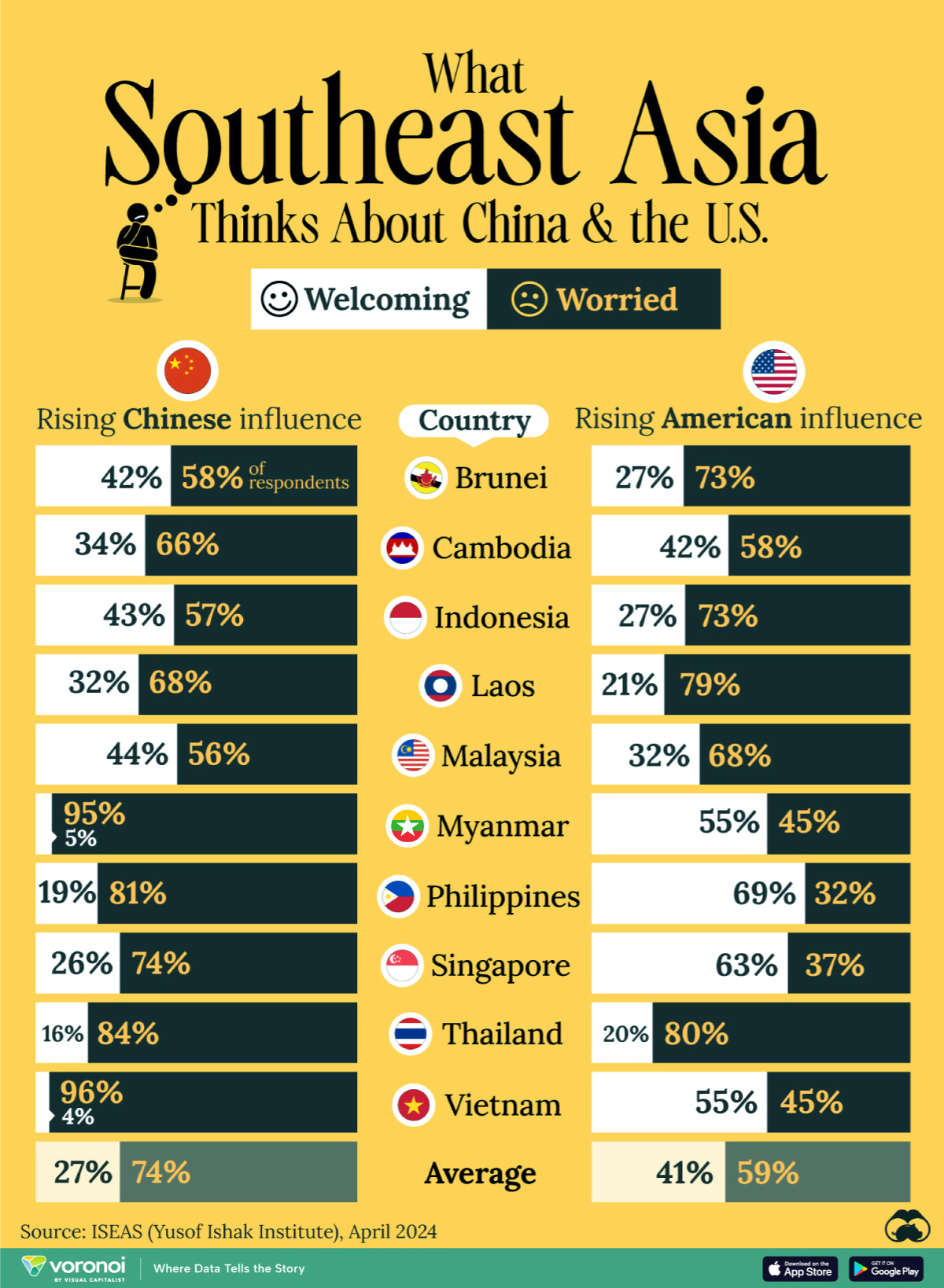
 What Southeast Asia Thinks About China & the U.S.This chart visualizes the results of a 2024 survey conducted by the ASEAN Studies Centre at the ISEAS-Yusof Ishak Institute. Nearly 2,000 respondents were asked if they were worried or welcoming of rising Chinese and American geopolitical influence in their country.The countries surveyed all belong to the Association of Southeast Asian Nations (ASEAN), a political and economic union of 10 states in Southeast Asia.Feelings Towards ChinaOn average, a significant share of respondents from all 10 countries are worried about rising influence from both the U.S. and China.However, overall skepticism is higher for China, at 74% (versus 59% for U.S.).
What Southeast Asia Thinks About China & the U.S.This chart visualizes the results of a 2024 survey conducted by the ASEAN Studies Centre at the ISEAS-Yusof Ishak Institute. Nearly 2,000 respondents were asked if they were worried or welcoming of rising Chinese and American geopolitical influence in their country.The countries surveyed all belong to the Association of Southeast Asian Nations (ASEAN), a political and economic union of 10 states in Southeast Asia.Feelings Towards ChinaOn average, a significant share of respondents from all 10 countries are worried about rising influence from both the U.S. and China.However, overall skepticism is higher for China, at 74% (versus 59% for U.S.).
 Influence
Influence Influence
Influence Brunei
Brunei Cambodia
Cambodia Indonesia
Indonesia Laos
Laos Malaysia
Malaysia Myanmar
Myanmar Philippines
Philippines Singapore
Singapore Thailand
Thailand Vietnam
VietnamThe recently-cooled but still active territorial concerns over the South China Sea may play a significant role in these responses, especially in countries which are also claimants over the sea.For example, in Vietnam over 95% of respondents said they were worried about China’s growing influence.Feelings Towards AmericaConversely, rising American influence is welcomed in two countries with competing claims in the South China Sea, the Philippines (69%) and Vietnam (55%).
 Influence
Influence Influence
Influence Brunei
Brunei Cambodia
Cambodia Indonesia
Indonesia Laos
Laos Malaysia
Malaysia Myanmar
Myanmar Philippines
Philippines Singapore
Singapore Thailand
Thailand Vietnam
VietnamDespite this, on a regional average, more respondents worry about growing American influence (59%) than they welcome it (41%).Interestingly, it seems almost every ASEAN nation has a clear preference for one superpower over the other.The only exception is Thailand, where those surveyed were not a fan of either option, with 84% worried about China, and 80% worried about the U.S.More By This Author:Visualizing Global Gold Production In 2023 All Of The Grants Given By The U.S. CHIPS ActEconomic Growth Forecasts For G7 And BRICS Countries In 2024















